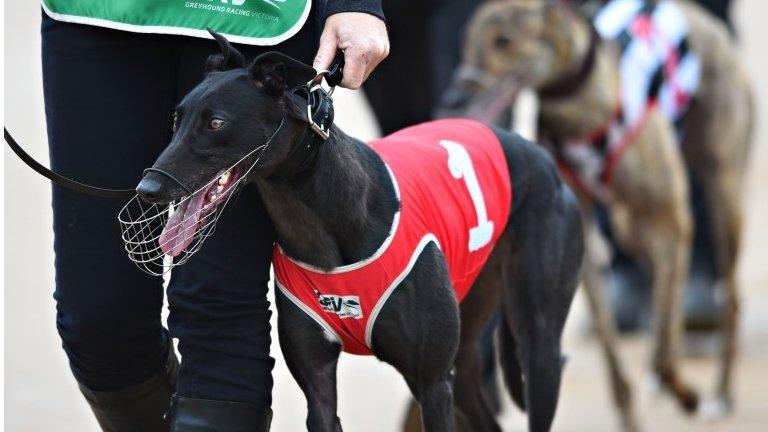Abuse and 'wastage' in Australia's greyhound industry
- Published
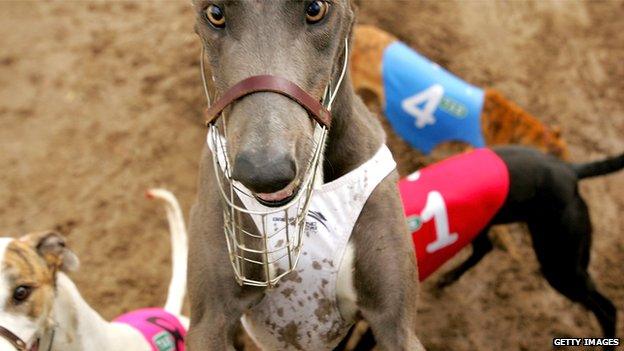
When 55 greyhound carcasses were found dumped in a wildflower reserve on the coast of Queensland this week, it barely raised an eyebrow among those who know the racing industry well.
According to animal protection group the RSPCA the dogs had likely been shot. And many were abandoned there, near Bundaberg in the state's south-east, some time ago.
"It's probably likely it was a common dumping ground," RSPCA Queensland spokesman Michael Beatty told the BBC.
"We've always known that there's wastage within the industry, but to find 55 bodies in one spot is a bit disturbing."
Short lives
Police and the RSPCA are now investigating the find as part of a joint taskforce established in Queensland following an expose by the Australian Broadcasting Corporation (ABC), external earlier this year into the practice of "live baiting" within the greyhound racing industry across the nation.
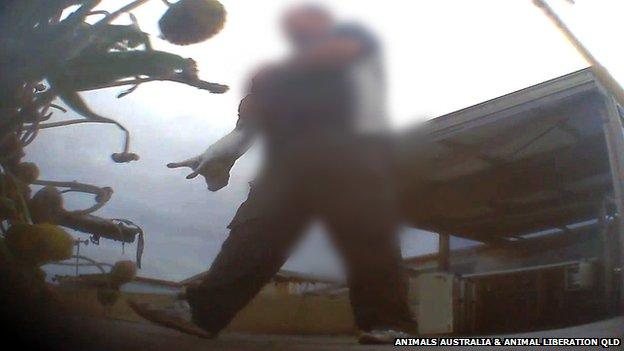
The ABC report into live baiting in training sessions shocked Australia
The ABC aired disturbing footage of greyhounds chasing live pigs, possums and rabbits around tracks. The "bait" animals were tied to mechanical lures before being chased and mauled to death by dogs during training sessions.
Trainers and owners were blooding their dogs - giving them a taste of blood before the chase - to make them faster in competition, despite the practice being illegal.
Only 2,000 of the roughly 20,000 greyhound puppies born each year in Australia live to a full life span of about 12 years, according to Animals Australia, which provided footage of live baiting to the ABC.
Most are killed at a young age after their racing career is over, or are euthanised as puppies because they are unwanted.
In the wake of February's broadcast, four Australian states - NSW, Victoria, Queensland and Tasmania - have launched inquiries into the greyhound racing industry. Dozens of trainers have been suspended across the country, some have been banned from ever participating in greyhound racing again and others have been charged under animal cruelty laws.
In NSW, the entire governing board for the sport was suspended from duty.
Dump 'not unusual'
Greyhound Rescue, a voluntary group based in Sydney that houses greyhounds abandoned after their racing careers end, has welcomed increased scrutiny of the industry.
But it was not surprised by the shallow grave found this week in Queensland. Jessica Crause, from Greyhound Rescue, said the discovery was not unusual.
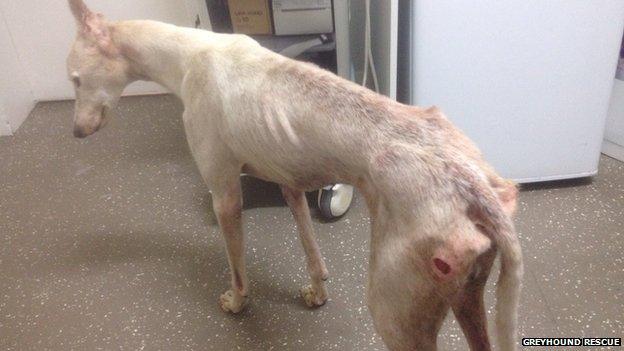
Napoleon, a former racing greyhound, was found emaciated with sores and other injuries
Late last year, Greyhound Rescue found Napoleon, a former racing greyhound, wandering the streets of Sydney.
He was starving, had pressure sores on his body from lying on concrete and bitumen, rocks in his stomach, and black teeth from scavenging.
The vet who treated him described his condition as the worst he had ever seen in a dog.
"He was so emaciated and covered thickly in fleas - so much so that the vet nurses cried as they bathed him," recalls Nora Anderson-Dieppe, also from Greyhound Rescue.
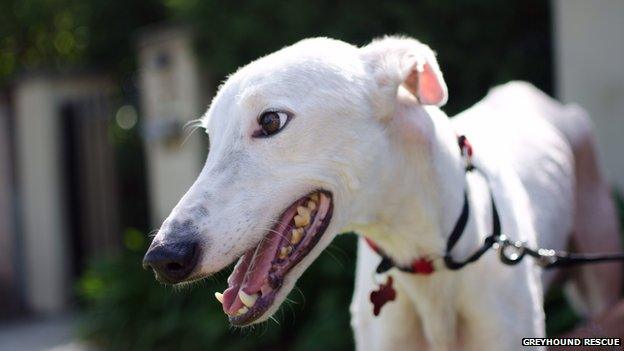
Napoleon was nursed back to health and found a home by the Sydney dog charity
The Sydney-based charity, which takes up to 250 greyhounds into its care each year in New South Wales (NSW) and the Australian Capital Territory, finds homes for as many of the dogs as it can. Some have been abandoned, others are handed over directly by trainers who have no use for the dogs anymore.
But given the sheer numbers of greyhounds bred for racing, it says it is fighting an up-hill battle. It says it receives puppies with untreated traumatic paw amputations, dogs with festering wounds, animals beaten by their trainers or used as breeding bitches for too many years, among other things.
Some animal rights groups, including Animals Australia, have called for the entire industry to be shut down.
"I don't know how you could call for anything but an end to greyhound racing," Lisa Chalk, a spokeswoman for the animal rights group, told the BBC.
Code of silence
Australia is one of only eight countries in the world where a commercial greyhound industry still exists. In addition to the UK, New Zealand and Ireland, Macau, Mexico and Vietnam have money-spinning racing.
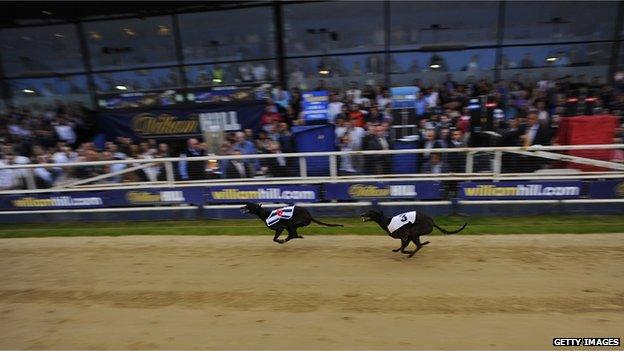
The UK, along with Australia, has a lucrative and popular greyhound racing industry
In the United States, where it is also a commercial sport, greyhound racing is on the way out. The main anti-greyhound industry group, GREY2K, reports 39 states have now banned commercial dog racing. In only seven states is it still a viable operation.
But greyhound proponents say there is still a future in the sport.
"There's a bit of a code of silence hanging over the whole show and a legacy of handed-down practices," says Geoff Slattery, a former sports editor of Melbourne newspaper The Sunday Age, who breeds and trains dogs for racing.
He said public exposure of archaic and sometimes illegal practices could help the sport.
"Bad things can actually make good things happen," he says.
Mr Slattery believes says the industry needs a tough national oversight body with a good governance structure and the authority to enforce strict regulations, along with a tightening of licensing rules to make participation a more rigorous process.
"It's pretty much been an amateur sport and still is," he says. "[Under a stricter system] you may have a loss of numbers or you may have a tighter control over the numbers."
The existing national body, Greyhounds Australasia, which oversees racing in Australia and New Zealand, is "toothless and all but irrelevant", he says.
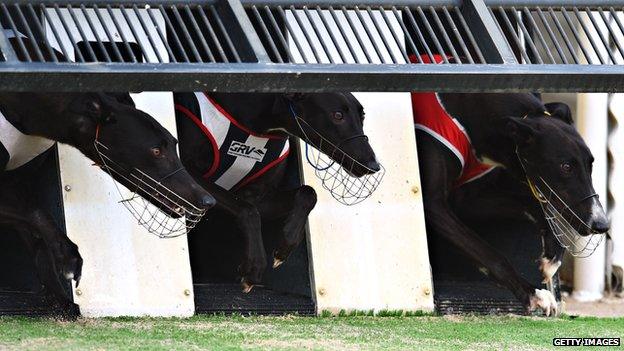
The racing industry says it has tight regulations and does not tolerate abuse of animals
Greyhounds Australasia's newly-appointed chief executive officer, Scott Parker, said the industry, which employs more than 10,000 people, should not be punished as a whole because of the actions of a few.
"Recent evidence that a small number of the sport's 50,000 participants were using live bait as a training method horrified industry administrators," he says.
"Australian greyhound racing is a A$1bn ($770m; £520m) industry providing hundreds of millions of dollars in taxes to state and territory governments annually. It is administered by statutory authorities whose boards are appointed by ministers for racing."
In March, Victoria's Racing Integrity Commission cleared that state's Greyhound Racing board of any knowledge of animal cruelty. The board members nonetheless resigned en masse shortly after the commission's interim report was released.
But Lisa Chalk of Animals Australia believes that when gambling and animals are combined, the animals will always come last. "Animals come second to profit," she says.

Saffron Howden is a Sydney-based writer and journalist
- Published2 April 2015
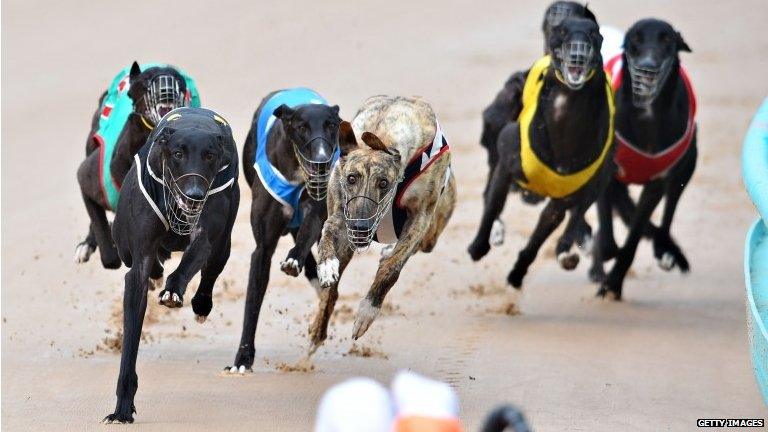
- Published17 February 2015
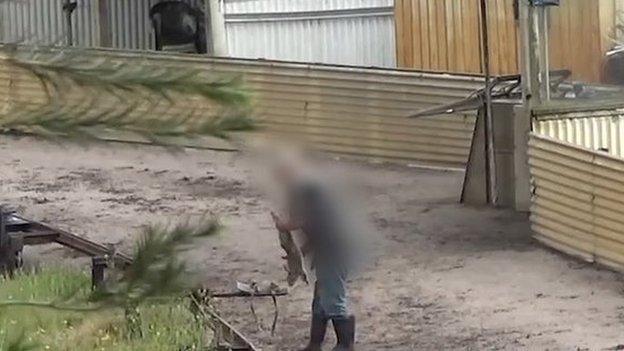
- Published19 February 2015
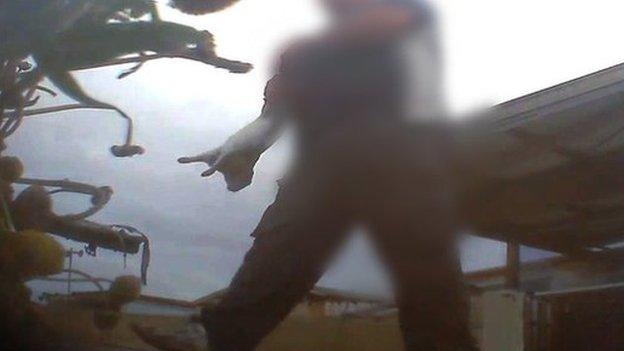
- Published24 February 2015
